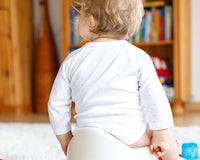Are you pregnant or have you recently given birth? Pregnancy is an incredible journey; your body grows, shifts, and adapts to support new life. But with all these changes, many women experience an unexpected side effect: urinary incontinence.
Stress Urinary Incontinence (SUI) is the most common type of urinary incontinence associated with pregnancy and affects many women during pregnancy and after birth.
It can cause leaks during activities such as laughing, sneezing, coughing, or exercise, and it’s more common than you think.
One in three women who have had a baby experience leakage at some point. More than a third of women experience involuntary urinary leakages during the second and third trimesters, and a third of women experience incontinence during the first three months after delivery. In most cases, it is a short-term side effect, but unfortunately, it can be more long-term for some women.
What causes urinary incontinence during pregnancy?
During pregnancy, a woman’s body undergoes many changes and transformations that can increase the risk of urinary incontinence.
1. Pelvic Floor Pressure
As your baby grows, your uterus expands and adds pressure on your bladder. This extra weight can weaken your pelvic floor muscles, making it harder to control leaks
2. Reduced Bladder Capacity
As your baby takes up more space, your uterus (situated over the bladder) grows, leaving less room for the bladder to expand. Even a small amount of urine can create a strong urge to urinate more frequently.
3. Hormonal Changes
Pregnancy hormones relax muscles and ligaments in preparation for childbirth. This includes the muscles supporting your bladder and bowel, which affect your bladder and bowel control.
4. Labour and Delivery
Vaginal birth stretches the pelvic floor, which can lead to muscle or nerve damage, especially in cases of prolonged or difficult labour. Even a caesarean section carries some risk. For first-time C-sections, the risk of incontinence drops from 10% to 5%, but after the third caesarean, the risk returns to levels similar to vaginal births.
All of these factors can weaken the muscles responsible for bladder control, increasing the chance of leaks during and after pregnancy.
Tips to manage incontinence during pregnancy.
There are some simple steps you can take during pregnancy to help prevent Stress Urinary Incontinence (SUI):
- Keep a healthy weight
-
Avoid constipation, as this strains pelvic floor muscles. Eat a high fibre diet, including fruit, vegetables and cereals
-
Limit drinks that contain sugar and caffeine, as these can irritate the bladder
- Drink plenty of water and stay hydrated
- Frequent urination (go to the toilet as many times as you need)
- Practice prepartum exercises to stimulate the muscles. Take care of your pelvic floor by doing regular pelvic floor exercises (Kegels)
- Stay active during pregnancy. Exercise for at least 30 minutes every day. Always exercise safely during and after pregnancy. Some good exercises can be walking, water aerobics, swimming, pilates, yoga, light weight training, etc
Exercises You Can Do During Pregnancy to Help Prevent Stress Urinary Incontinence
Staying active during pregnancy doesn’t just strengthen the muscles that help control your bladder; it can also support your overall health. Here are some safe and effective exercises you can do during pregnancy to help reduce the risk of stress urinary incontinence (SUI)
1. Pelvic Floor Exercises (Kegels)
Pelvic floor exercises are the most important for preventing bladder leaks.
-
Squeeze and lift the muscles you’d use to stop the flow of urine.
-
Hold for 5–10 seconds, then relax for the same amount of time.
-
Repeat 10–15 times, 3 times a day.
2. Prenatal Yoga
Yoga improves core strength, balance, and flexibility while gently activating the pelvic floor muscles. Look for a class or video specifically designed for pregnancy.
3. Walking
The low-impact and safe way to stay active throughout your pregnancy. Walking helps maintain a healthy weight and improves circulation, both of which support pelvic floor health.
4. Swimming or Water Aerobics
Water-based exercises relieve pressure on your pelvic floor while providing full-body conditioning.
5. Pilates for Pregnancy
Prenatal Pilates targets core muscles, including the pelvic floor, and improves posture and stability.
Important: Always consult your GP, midwife, or physiotherapist before starting any new exercise routine during pregnancy, especially if you have pelvic pain, high-risk pregnancy, or other concerns.
By strengthening your pelvic floor and staying active, you’re taking powerful steps toward preventing urinary incontinence and supporting a smoother postpartum recovery.
After birth: What to expect
In the first days after giving birth, stress urinary incontinence (SUI) is very common. However, if it persists, it’s important to seek treatment.
Whether you’ve had a caesarean or vaginal birth, the duration of incontinence can vary from every women. In many cases, symptoms improve within a few months, but for some women, it may take longer or become a long-term issue.
Sometimes, incontinence may go away after birth but return during future pregnancies or deliveries.
After birth, it is important to give time for your pelvic floor to recover:
- Ice the perineal area and have plenty of rest
- Start with gentle pelvic floor exercises when you are lying down
- Maintain a healthy diet and hydration
-
Aim for gradual weight loss
How is urinary Incontinence treated?
Treatment will depend on what kind of incontinence you have and how severe it is. It is best to go to a specialist to guide you in the best way to be treated. Some ways to manage:
- Pelvic floor exercises
- Bladder training
- Medication
- Surgery procedures
You are not alone, Night n Day can help
While you recover, our washable and reusable, leak-proof incontinence underwear and pads can help you feel secure, dry, and confident. Each product is specially designed for the female anatomy to ensure the most comfortable and secure protection against urinary incontinence. Because we want you to feel confident wherever you go!
Emotional well-being matters, too
Urinary incontinence not only affects your physical health but also your emotional health and wellbeing, which can be linked to birth trauma. If you are having any concerns or are experiencing anxiety or depression, it is best to talk to a specialist or friend and remember, you are not alone!
To get support, call the National Continence helpline at 1800 33 00 66, a free telephone service that offers confidential information, advice and support.
If you have any questions, never hesitate to contact us! - There's no such thing as a silly question!
Web: https://nightnday.com.au
Email: gday@nightnday.com.au
Australia: (02) 9531 2011
International: +61 2 9531 2011








